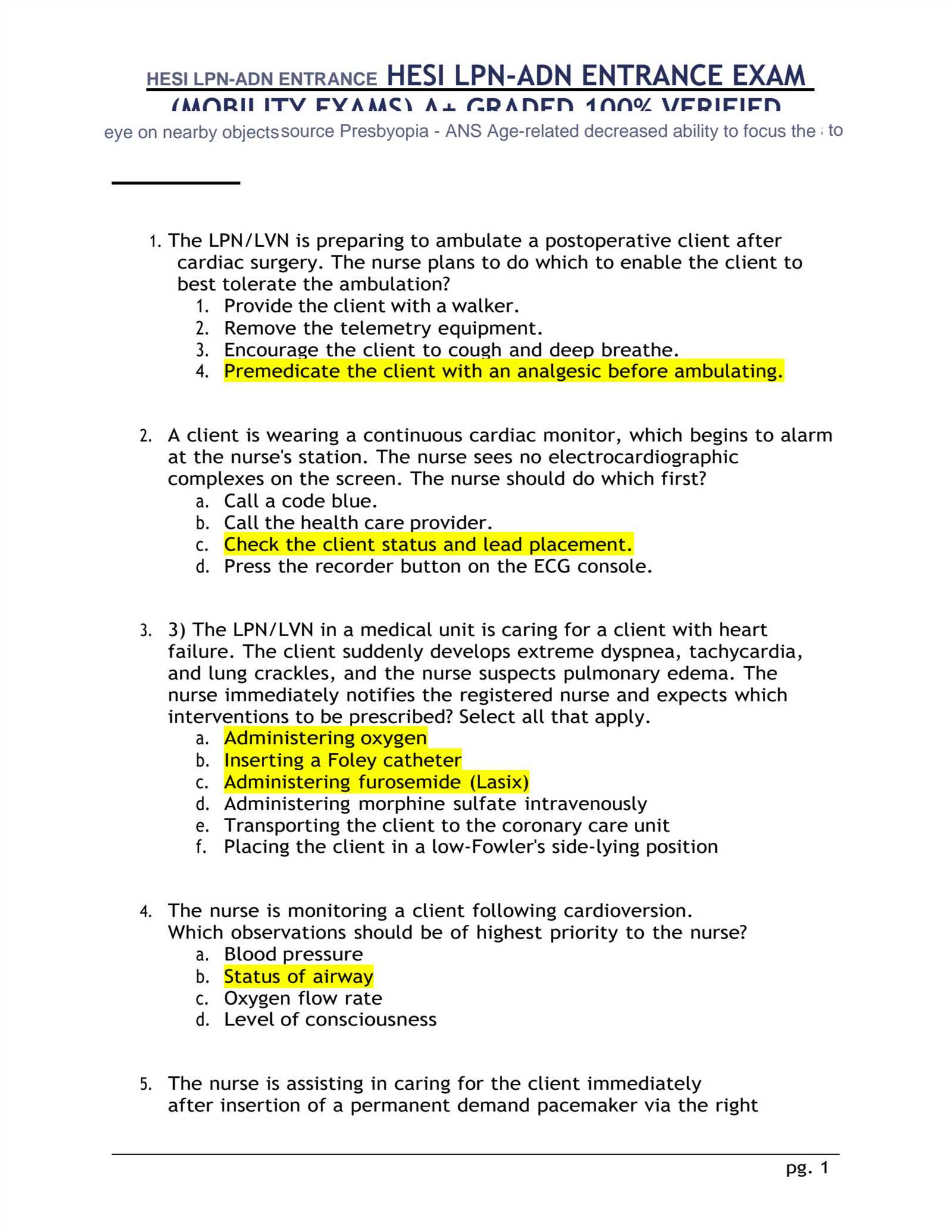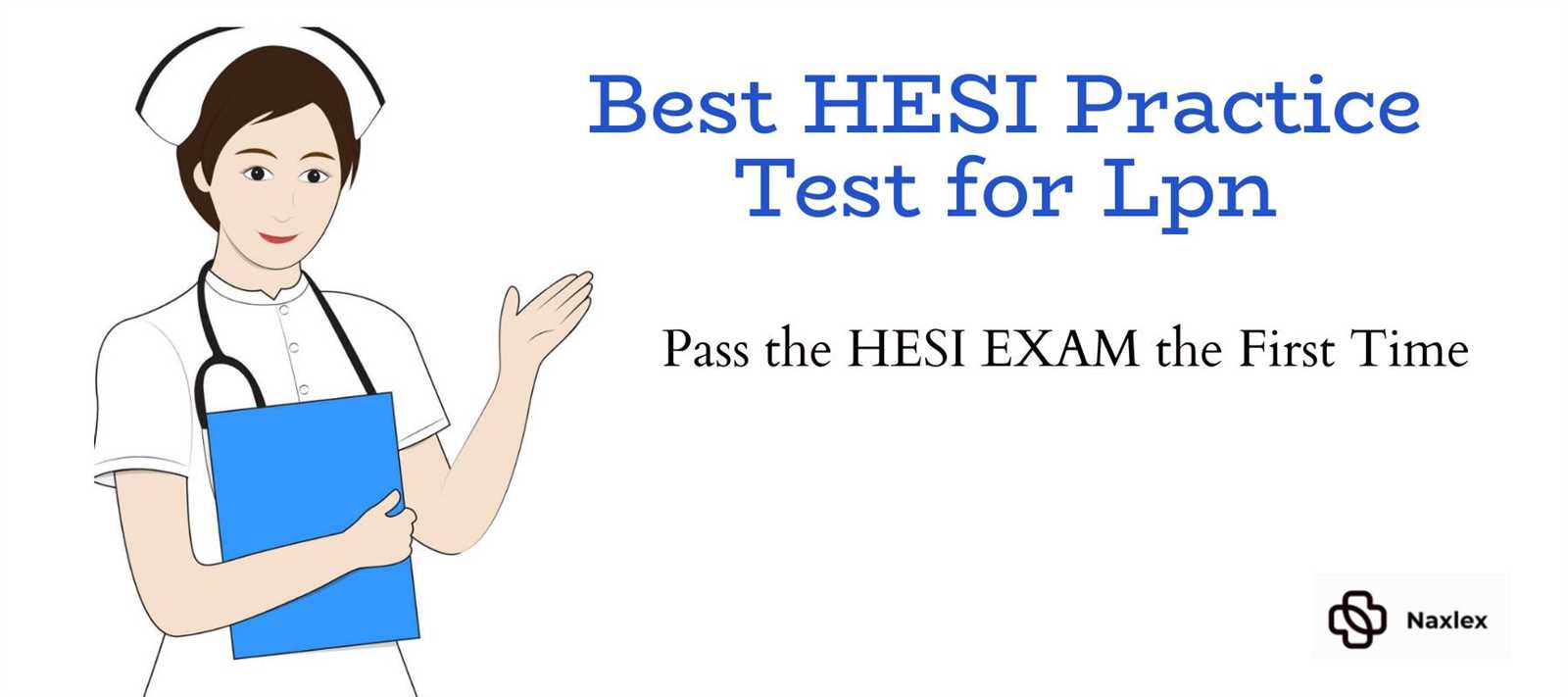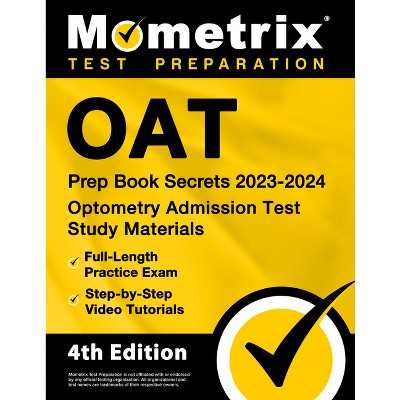
Achieving success in the initial evaluation for nursing school requires a well-rounded approach to learning and testing. This stage often serves as a major hurdle for aspiring healthcare professionals, as it assesses both knowledge and problem-solving abilities in a high-pressure environment.
Focused preparation is key to gaining the confidence needed to excel. Developing effective strategies and dedicating time to reviewing critical topics can significantly enhance your performance. Moreover, gaining familiarity with the structure and types of questions you will encounter helps reduce anxiety and allows for better time management during the actual evaluation.
By simulating real-life testing conditions and reviewing challenging subjects, you can strengthen your understanding and improve your chances of success. Emphasizing quality preparation over sheer volume is essential for mastering the material and approaching each question with clarity.
Understanding the LPN Entrance Exam
The initial evaluation to enter nursing programs is designed to assess a candidate’s readiness and suitability for the rigorous coursework and clinical training ahead. This assessment gauges a range of essential skills, from basic medical knowledge to logical reasoning and problem-solving capabilities. It is an important tool for ensuring that applicants are well-prepared for the challenges of nursing education.
While the specific content may vary depending on the institution, these evaluations typically focus on subjects such as biology, mathematics, reading comprehension, and critical thinking. The goal is to determine whether candidates possess the necessary foundational knowledge and cognitive skills to succeed in a fast-paced, demanding academic environment.
It is crucial to understand the structure and nature of the evaluation in order to approach it with confidence. By familiarizing yourself with the format, you can develop strategies to manage time effectively, identify key areas of weakness, and build on your strengths. Preparation in the form of targeted study and simulated assessments can be a game-changer in performing well on this crucial stage of your educational journey.
Key Skills Tested in LPN Exams
The evaluation process for nursing candidates assesses a wide array of essential skills required for success in the healthcare field. These assessments are designed to determine a candidate’s ability to think critically, solve problems, and apply knowledge in practical scenarios. In addition to academic knowledge, practical skills and the ability to manage real-world situations are key components of the evaluation.
Core areas of focus typically include biology and human anatomy, where candidates demonstrate their understanding of body systems and how they interact. Basic math skills are also tested, as accurate calculation of dosages and measurements is crucial in medical settings. Moreover, reading comprehension and logical reasoning are evaluated to ensure that candidates can interpret medical texts, follow instructions, and make informed decisions quickly.
Another important aspect of the evaluation is assessing the ability to think on one’s feet and handle high-pressure situations. Candidates must show that they can remain calm, prioritize tasks, and make decisions in complex and often urgent scenarios. These skills are not only essential for success in educational settings but are also vital for real-world nursing practice.
Benefits of Practice Tests for LPN
Engaging in simulated evaluations can significantly improve performance by providing insight into the structure and format of the real assessment. These activities offer an opportunity to familiarize oneself with the type of content that will be encountered, making it easier to approach the actual challenge with confidence and clarity. By replicating the conditions of a real examination, individuals can gain valuable experience in managing time and stress.
Another key advantage is identifying areas that require further focus. Through these exercises, candidates can pinpoint weaknesses in their knowledge and skills, allowing for more targeted studying. This enables efficient use of preparation time and ensures that efforts are directed toward the most critical areas for improvement.
Moreover, these mock evaluations help reduce test anxiety. The more a candidate practices under exam-like conditions, the less intimidating the real assessment becomes. Familiarity with the process allows individuals to approach the situation calmly and perform at their best when the time comes.
How Practice Can Improve Confidence
Repeated exposure to assessment scenarios enhances both knowledge retention and overall self-assurance. By becoming familiar with the format and types of questions, individuals begin to feel more comfortable with the process. This familiarity reduces anxiety and helps to cultivate a positive mindset when facing future challenges.
Building Familiarity with the Process
Regularly engaging in mock scenarios allows candidates to understand the pacing and structure of the actual evaluation. As they become accustomed to the flow, they can approach each section with greater ease, leading to a sense of control and readiness. This builds confidence over time, ensuring that individuals are not overwhelmed by the unknown elements of the real experience.
Strengthening Knowledge and Skills
As individuals consistently review material and tackle practice exercises, their understanding deepens. This ongoing reinforcement of key concepts helps solidify their ability to recall information quickly and accurately. With increased proficiency, the candidate’s confidence naturally improves, knowing they are equipped with the knowledge to succeed.
Common Challenges in LPN Exams
Candidates often encounter various obstacles when attempting the initial assessments for nursing programs. These hurdles can range from difficulty managing time to struggling with specific content areas. Understanding these common challenges can help you better prepare and approach the situation with a clear strategy.
Time Management Issues
One of the most frequent challenges candidates face is the pressure of time constraints. With limited hours to complete a wide variety of questions, it is easy to become overwhelmed. Effective time management is crucial for completing each section thoroughly without rushing.
Difficulty with Complex Content
Another challenge is the complexity of the subject matter, particularly when dealing with medical terminology, human anatomy, and problem-solving scenarios. Some candidates find these topics overwhelming and may struggle to apply theoretical knowledge to practical situations.
| Challenge | Potential Solutions |
|---|---|
| Time Management | Develop a time allocation strategy for each section and practice pacing. |
| Complex Content | Review key concepts regularly and seek additional resources for clarification. |
| Anxiety and Stress | Simulate test conditions to build confidence and reduce stress. |
By recognizing these challenges and proactively working to overcome them, candidates can improve their readiness and boost their chances of success on the real assessment.
Time Management Tips for Test Day
Effective time management is one of the most crucial aspects of succeeding in any high-pressure assessment. On the day of the evaluation, it’s essential to balance speed with accuracy, ensuring that you have enough time to answer every question while maintaining focus. Proper planning and strategy can help you avoid rushing or spending too much time on any single item.
Preparation Before the Assessment
- Arrive early to familiarize yourself with the environment and avoid unnecessary stress.
- Ensure you have all necessary materials, such as identification, and any required documents, so you’re not wasting time gathering them last minute.
- Review your study notes or quick reference guides briefly before the session to refresh your memory.
During the Assessment
- Read through all instructions carefully, but don’t spend too long on them–understand the essentials and move forward.
- Allocate a specific amount of time to each section and stick to it. Set a mental timer to guide your pace.
- If you encounter a difficult question, mark it and move on. Return to it later if time allows, instead of spending excessive time on it.
- Focus on accuracy first, then speed–making sure your answers are well thought out before moving on.
By implementing these strategies, you’ll be able to manage your time more effectively and reduce stress, improving your chances of success during the evaluation process.
Effective Study Strategies for Success
Preparing for a rigorous assessment requires a focused and organized approach to studying. To maximize efficiency and retention, it’s essential to use methods that engage both your memory and problem-solving skills. By implementing structured study routines and staying disciplined, you can improve your ability to recall information and apply it accurately under pressure.
Set Clear Goals and Prioritize Key Areas

Begin by identifying the most important subjects and areas that are likely to be tested. Break down complex topics into manageable sections and set specific goals for each study session. Prioritize your weakest areas, but don’t neglect the subjects you feel more confident about. A balanced approach will ensure that all critical areas are covered.
Active Learning and Regular Review
Rather than passively reading notes, engage with the material through active learning techniques. Practice recalling information, teaching the material to someone else, or using flashcards. Additionally, make time for regular reviews to reinforce what you’ve already learned. Spacing out these review sessions will help strengthen long-term retention and deepen your understanding of the material.
With consistent effort, a well-structured study plan can provide a solid foundation and significantly boost your chances of performing well when the time comes.
Choosing the Right Study Materials
Selecting the right resources is crucial when preparing for a challenging evaluation. With a variety of books, online tools, and other materials available, it’s important to choose those that align with your learning style and the specific content covered in the assessment. Well-chosen study aids can help you focus your efforts and ensure that you’re fully prepared for the task ahead.
Consider Reliable Sources
Opt for materials created by experts or reputable organizations. Look for textbooks and study guides that cover all relevant topics in detail. Online platforms offering interactive lessons or mock scenarios are also useful for building practical knowledge. It’s important to verify that the resources you choose are current and reflect the content of the evaluation you’re preparing for.
Balance Between Theory and Practice
Make sure your materials provide a balanced approach, covering both theoretical knowledge and practical application. While understanding foundational concepts is important, it’s equally essential to practice applying them in real-world scenarios. A combination of reading, quizzes, and interactive tools can help reinforce what you’ve learned and improve your problem-solving skills.
By carefully selecting study materials that are thorough, up-to-date, and suited to your learning preferences, you can build a strong foundation and increase your chances of success.
How to Analyze Your Test Results
After completing an assessment, it’s essential to take a moment to reflect on your performance. Analyzing your results can provide valuable insights into areas of strength and weakness, allowing you to adjust your study approach for future success. Rather than simply reviewing scores, a thorough analysis helps identify specific topics where improvement is needed.
Review Mistakes and Patterns

Focus on questions you struggled with and understand why you answered them incorrectly. Were there particular topics or question types that caused difficulty? Identifying these patterns will allow you to target specific areas for further study. Revisit these sections and ensure you fully grasp the underlying concepts.
Measure Progress Over Time
Compare your results across multiple assessments to track improvement. This will help you see if your study techniques are effective or if adjustments are necessary. Consistent progress indicates that your preparation is on the right track, while areas with little improvement may need a different approach.
| Area of Focus | Action Plan |
|---|---|
| Weak Subject Areas | Allocate extra study time to review key concepts and practice problems. |
| Question Types | Practice similar question formats to improve familiarity and accuracy. |
| Time Management | Work on pacing and prioritize easier questions first. |
By taking a methodical approach to analyzing your results, you can enhance your study strategies and improve performance on future assessments.
Simulating Real Test Conditions
To prepare effectively for a high-stakes evaluation, it’s essential to recreate the environment and constraints you’ll face on the actual day. By simulating real-life conditions, you can reduce anxiety and improve your ability to perform under pressure. This method helps you become familiar with the time limits, focus requirements, and other factors that might affect your performance.
Key Steps to Simulate Real Conditions
- Set a timer: Allocate the same amount of time that will be given during the actual assessment. This will help you manage time effectively and avoid rushing.
- Choose a quiet environment: Simulate the quiet, distraction-free setting you will encounter, so you can focus without interruptions.
- Use official materials: If possible, use the same format of questions and resources that you will encounter. This will provide a realistic experience and help you understand the structure of the assessment.
- Recreate the conditions: Dress as you would on the actual day and sit at a desk or table, mimicking the formal atmosphere of the evaluation.
Benefits of Simulating Real Conditions

- Reduces anxiety: Familiarizing yourself with the setting can ease nervousness and boost confidence.
- Improves time management: Practicing under time constraints trains you to pace yourself effectively and avoid spending too much time on any single question.
- Enhances focus: Simulating the evaluation environment helps sharpen your concentration, which is crucial for success during the real assessment.
By regularly simulating the real conditions, you can increase your preparedness and ensure that you’re ready to tackle the challenges of the evaluation confidently.
Why Accuracy Matters in LPN Exams
In any high-stakes evaluation, precision plays a critical role in determining success. The ability to answer questions correctly not only reflects your knowledge but also demonstrates your readiness to handle real-world challenges. In professions requiring technical skills, accuracy ensures that tasks are carried out safely and efficiently, which is why it’s emphasized during assessments.
Being accurate goes beyond simply knowing the right answer; it’s about applying your knowledge in the most effective way. Misunderstanding questions or making careless mistakes can lead to missed opportunities for demonstrating your competence. In a professional setting, this can have significant consequences, which is why assessments are designed to test not only your knowledge but also your ability to perform with precision under pressure.
Developing a habit of accuracy during your preparation phase will help instill confidence and competence, ensuring that when it matters most, you are ready to deliver the best possible results.
Reviewing Incorrect Answers for Improvement
One of the most effective ways to enhance your skills and knowledge is by carefully reviewing the areas where mistakes were made. Reflecting on incorrect responses provides valuable insights into your understanding of key concepts and helps identify knowledge gaps that need attention. This process not only strengthens weak areas but also reinforces correct information, leading to overall improvement.
Understanding the Mistakes
When you encounter incorrect answers, it’s important to analyze why they were wrong. Was it a lack of understanding of the content? Did you misinterpret the question? Identifying the root cause of the mistake will help you avoid repeating it and ensure that you grasp the concept fully. Reassess your thought process and correct any misconceptions.
Corrective Action Plan
Once you’ve pinpointed the problem, take proactive steps to resolve it. Review the relevant material thoroughly, seek additional explanations if necessary, and practice similar questions to reinforce your learning. By consistently addressing your errors, you’ll build a stronger foundation and increase your chances of success moving forward.
Mastering Key LPN Exam Topics
Achieving success in a competitive assessment requires a deep understanding of essential subject areas. Focusing on mastering core topics ensures that you are well-prepared to handle the most frequently tested concepts. By thoroughly studying these key areas, you can approach the evaluation with confidence, knowing that you have a solid foundation to build upon.
Identifying Core Subjects
Each assessment typically covers a set of fundamental subjects that are critical to the role you are pursuing. These subjects may include health care principles, anatomy, patient care, pharmacology, and medical terminology. Understanding the importance of these areas will help you prioritize your study efforts and allocate time to each subject based on its relevance and complexity.
Developing Expertise in Critical Areas
Once you’ve identified the most important topics, delve deeper into each one. Make sure you understand both the theory and the practical applications. Review detailed case studies, work through problem-solving exercises, and reinforce your knowledge with hands-on practice when possible. This approach will ensure that you have a comprehensive grasp of the material and are prepared to demonstrate your expertise when the time comes.
Maintaining Focus During Practice Tests
Staying focused during simulated assessments is essential for success. Maintaining attention on the task at hand helps to ensure that every question is answered thoughtfully and carefully. Distractions can lead to missed details, which may impact your overall performance. Developing strategies to stay concentrated can significantly improve your ability to perform under pressure.
Strategies to Improve Focus
Here are some techniques that can help you maintain focus during your preparation sessions:
- Set Clear Goals: Before you begin, decide what you aim to accomplish. Whether it’s completing a certain number of questions or mastering a specific subject, having a clear goal will help you stay on track.
- Minimize Distractions: Create a quiet and comfortable study environment. Turn off your phone, close unrelated tabs, and eliminate other distractions that might interrupt your concentration.
- Take Regular Breaks: Extended periods of focus can lead to mental fatigue. Schedule short breaks between study sessions to refresh your mind and maintain energy levels.
Staying Mentally Engaged
It’s important to stay mentally engaged, even when working through difficult sections. Use techniques like active recall and spaced repetition to reinforce your focus. By engaging with the material in an interactive way, you keep your brain active and better prepared to retain information.
Building a Study Schedule for LPN
Creating a well-structured study schedule is key to managing your preparation effectively. A clear and organized plan allows you to allocate time to each subject, ensuring a balanced approach to learning. With a tailored schedule, you can focus on your strengths while giving ample time to areas that need more attention. This approach helps reduce stress and ensures consistent progress toward your goal.
Assess Your Time and Resources
Start by evaluating the time you have available before your assessment. Determine how many hours per day you can dedicate to studying and create a realistic timetable that fits your lifestyle. Include breaks and time for other responsibilities to avoid burnout. Additionally, gather all necessary resources such as textbooks, study guides, and online materials to support your plan.
Prioritize Key Subjects and Topics
Focus on subjects that are essential and often covered in evaluations. Begin with the areas where you feel least confident, as these will require more time and attention. As you progress, continue reviewing and reinforcing your knowledge in other topics. Incorporate active learning methods like flashcards or group study sessions to help retain information and stay engaged. Adjust the schedule as needed to accommodate any challenges or breakthroughs in your learning.
Staying Motivated Throughout Your Prep
Maintaining motivation during your preparation journey is essential for long-term success. Staying focused and energized throughout the process can be challenging, but with the right strategies, you can keep your enthusiasm high and make consistent progress. Setting clear goals, celebrating small victories, and managing your energy levels are all key to staying on track.
Set Clear, Achievable Milestones
Break down your larger objectives into smaller, manageable tasks. This not only makes the preparation process less overwhelming but also provides a sense of accomplishment as you complete each milestone. Examples of achievable goals could be mastering a specific topic or completing a set of practice questions in a week.
- Track your progress regularly
- Reward yourself when you reach each goal
- Stay flexible and adjust goals if needed
Find Your Source of Inspiration
Remind yourself of why you started this journey. Whether it’s a personal desire to succeed or a professional aspiration, keeping your motivation tied to a deeper purpose can help you push through challenging times. Visualizing your success or speaking with peers who share similar goals can also reignite your determination when you feel your energy flagging.
By keeping your eyes on the bigger picture and making steady progress, you’ll be better equipped to handle any obstacles that arise during your prep. Consistency, combined with a positive mindset, will lead you to success.